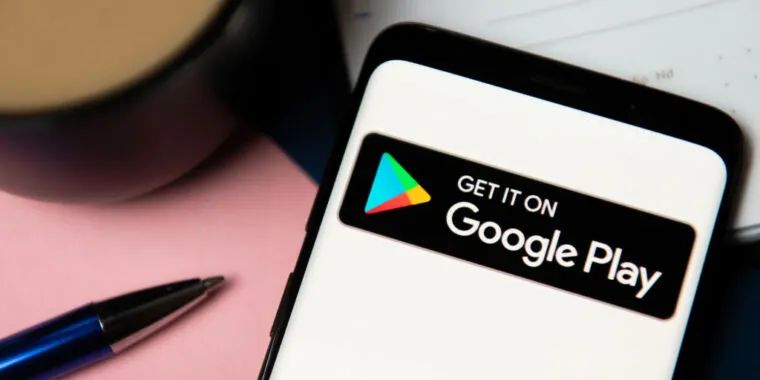Before linking an account, be sure the app you’re using is legit.
they were sending the wrong signal
Got their telegram delivered to the wrong person
Better late than never I guess?
Jesus Christ…
This is the best summary I could come up with:
Researchers on Wednesday said they found fake apps in Google Play that masqueraded as legitimate ones for the Signal and Telegram messaging platforms.
The malicious apps could pull messages or other sensitive information from legitimate accounts when users took certain actions.
Doing so caused the malicious app to send a host of private information to the attacker, including the device IMEI number, phone number, MAC address, operator details, location data, Wi-Fi information, emails for Google accounts, contact list, and a PIN used to transfer texts in the event one was set up by the user.
The following screenshot shows the information in transit from the infected device to the attacker server:
BadBazaar, the malware responsible for the spying, bypasses the usual QR code scan and user click process by receiving the necessary URI from its C&C server, and directly triggering the necessary action when the Link device button is clicked.
In this case, if the official Signal clients were to display a notification whenever a new device is linked to the account, the fake version could simply disable that code path to bypass the warning and hide any maliciously linked devices.
The original article contains 780 words, the summary contains 191 words. Saved 76%. I’m a bot and I’m open source!
Question for the iPhone vs Android crowd. Could this happen in the Apple App Store? Does Apple vet their apps better than Android?
I’ve submitted apps to both stores many times.
I hesitate to use the word “rigorous,” but Apple’s process is certainly more involved, though I’d say it’s also bureaucratic and even arbitrary. Their primary concern is clearly maintaining their tight control over their users’ phones, which is an extremely lucrative monopoly. The play process, by comparison, is definitely lighter, though I don’t know if I’d be comfortable saying it’s less well vetted.
Philosophically, relying on either of the duopolies to screen the software we use for safety is ultimately a bad system, especially since they are creating this problem. Until very recently, the internet existed on websites. They are pushing us to use mobile apps because it is more lucrative for them. Apple takes something like a 20% cut of every single transaction that happens on any iPhone app. They don’t even allow non-apple-webkit browsers on iOS, meaning that the iphone’s chrome, firefox, etc. are actually different than Android’s. They do this specifically to hamstring mobile browser development.
They’ve managed to align the incentives here by offering tech companies more advertising revenue through the mobile platform. Basically, if you make a mobile app, Apple takes a huge cut each time your users pay you, but companies also get to spy on you more, meaning more lucrative advertising.
This is a very informative comment. That last paragraph neatly sums up the anti-consumer nature of mobile apps. Thank you for your insight, and chef’s kiss for the username/pfp.
The username, profile pic, and even that last paragraph are all taken from my site, where I write about things just like this, if you’re into that kind of thing :D
Brilliant. This is exactly the kind of content I am looking for 😊
Welcome aboard!
Apple’s app submission process is definitely very involved and rigorous, sometimes to the point of absurdity, but that’s just the rules they have. We can talk about it all day another time, but I would certainly be impressed if straight up fake malware garbage got uploaded the same way that Google allows it to go on
I used Apple for the last few years until recently and I can’t say I’ve ever really noticed stuff like apps faking being another app. That’s not to say it doesn’t happen of course.
I do know the Apple app approval process is definitely more strict than what is required for the Play Store.
I’m not very experienced with Apple or Android development so I’d be curious to hear from devs that use both platforms as well.
My experience is from years ago, but the vetting process seemed about the same for both when I was working on an app. The initial publish process takes forever. The update process through Apple was much simpler and that used to be a successful attack vector.
Since you rarely get feedback from updates, it’s hard to say if Google was as vulnerable, but I’ve heard that the update scheme is still a thing. Publish a legit app then push malicious updates.
Interesting, thanks for the info!
I wasn’t aware of the update process being used as an attack vector (if it’s still a thing) gonna have to read up more on that.
Hi there! Looks like you linked to a Lemmy community using a URL instead of its name, which doesn’t work well for people on different instances. Try fixing it like this: [email protected]
They do. There is only one option in my App Store.
Hi there! Looks like you linked to a Lemmy community using a URL instead of its name, which doesn’t work well for people on different instances. Try fixing it like this: [email protected]








